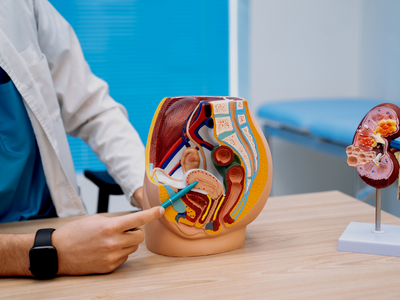Published on 2 February 2023
About 15% of Singaporean couples struggle to conceive, with male infertility responsible for nearly half of these cases.
Infertility is a medical condition that can be awkward and uncomfortable to talk about, even among married couples.
But it is a significant concern for many, as approximately one in seven Singaporean couples are affected by the condition. The figure on a global scale is similar, with about 15% of couples found to be infertile.
The causes of infertility – which is defined by the World Health Organisation (WHO) as a couple's inability to conceive after one year of regular, unprotected sexual intercourse – are relatively evenly split between male and female factors. About 40% of infertility cases are caused by the male sperm factor, 40% is primarily caused by the female reproductive system, while the remaining 20% is caused by a combination of both.
However, male infertility can be particularly difficult to diagnose, as there are usually no accompanying symptoms for the condition.
Assistant Professor Joe Lee, Senior Consultant, Department of Urology, National University Hospital (NUH) explained, “Male infertility is often undiagnosed until after marriage. Most men with low sperm count do not experience any symptoms and only realise the problem when they undergo semen analysis.
“Those who experience symptoms may notice poor libido, weak erections, or abnormal ejaculations. Some men may notice they have small testicles or poor development of adult male characteristics such as facial hair. Men with dilated veins near the scrotum called varicoceles may experience intermittent pain near the testicles.”
According to the WHO, a low sperm count is defined as below 15 million sperm/ml. While there have not been any large-scale studies conducted in Singapore to look at the average sperm count in infertile men, Asst Prof Lee believes it has likely declined over the years.
“Singapore men’s sperm count is likely to mirror the worldwide trend of a general drop of close to 50 per cent over the past five decades – a decline that has been noted in various studies,” said Asst Prof Lee.
While it is often hard to identify the definite cause for a person’s low sperm count, there are several known risk factors, including obesity, excessive consumption of alcohol, and exposure to certain environmental elements like chemicals, radiation, and heavy metal.
Nonetheless, men with low sperm count are still able to father children, although it will be more difficult for the couple to conceive naturally.
But according to Asst Prof Lee, using the popular rhythm method – in which the woman’s menstrual history is tracked to predict when she will ovulate – to try and conceive may not always be ideal.
“Timing intercourse to coincide with ovulation can be stressful for couples,” Asst Prof Lee elaborated. “Instead, the recommended frequency for sexual intercourse to optimise the chances of pregnancy is every two to three days.”
Asst Prof Lee also shared that while there remains doubt as to the efficacy of methods which focus on preventing semen spillage, there is no harm in couples trying them out.
“The impact of semen loss on fertility has not been studied extensively in humans, so the effectiveness of techniques such as keeping the woman's legs raised post-coital or using devices to reduce semen backflow is not well understood,” said Asst Prof Lee.
“However, we do know that semen that has been ejaculated usually forms a soft gel inside the vagina, which serves to protect the sperm from acids in the vagina and provides a platform for the sperm to enter the womb.
“For sperm to enter the womb, they need to spend an appropriate amount of time within the vagina, which is why techniques to reduce sperm spillage may be mixed in their effectiveness. It is generally considered harmless and couples may want to try these methods if they are having trouble conceiving.”
In consultation with Assistant Professor Joe Lee, Senior Consultant, Department of Urology, NUH.



